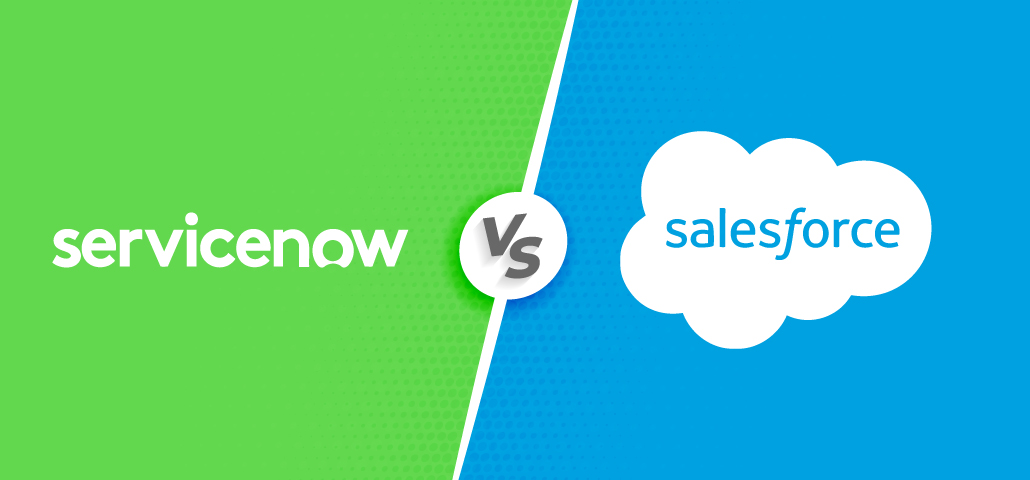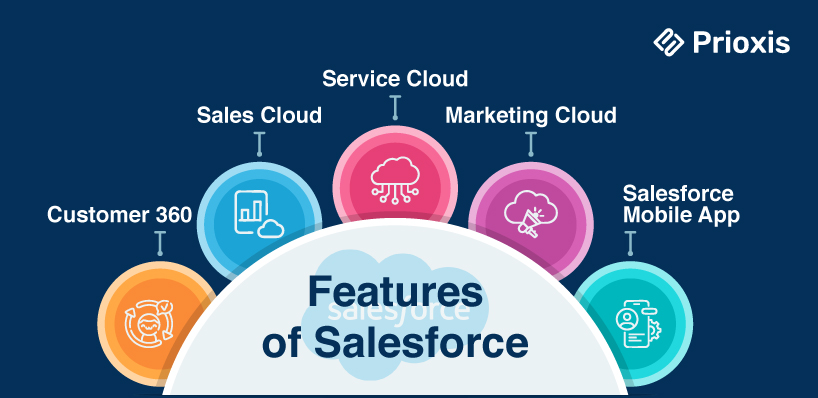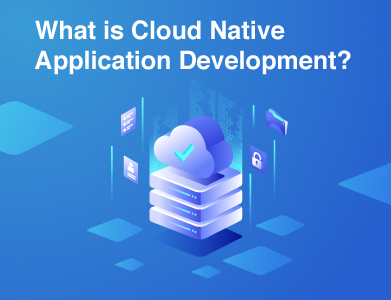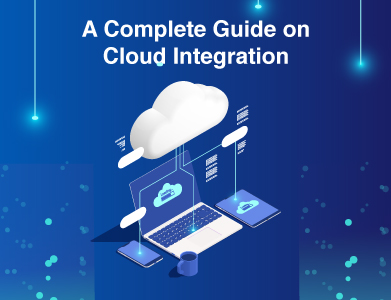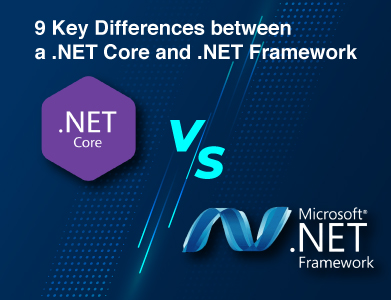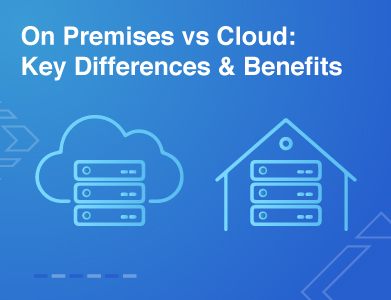Expertise
In today's digital environment, providing excellent client experiences is critical. It goes beyond help and encompasses the full client lifecycle. To satisfy these expectations, businesses use cloud-based solutions such as Salesforce vs ServiceNow.
ServiceNow excels at IT service management (ITSM) and workflow automation, whereas Salesforce specializes in customer relationship management (CRM) and sales automation. Both improve client experiences yet meet different needs.
This blog examines their key features, customization, and target users to help you choose the best one. This will help you make an informed decision about streamlining workflows or increasing engagement.
What is Salesforce?
Salesforce is considered to be the best-known Cloud-based Customer relationship management (CRM) platform made specifically to ensure business workflows remain optimized and on the right path. Whether it's a small-scale startup or an enormous enterprise, it gives tools and methodologies that streamline customer dealings, enhance selling procedures, and simply increase productivity.
It includes companies like Twilio and Google that use Salesforce as their customer relationship management tool. Salesforce is a customer-centric platform since it focuses on lead management, sales automation, marketing, and customer support. It's both a web and mobile application, which gives businesses the power to drive business growth while maintaining strong customer connections.
The Pricing Model of Salesforce
Salesforce uses a basic price strategy, making it affordable to enterprises of all sizes. Sales functionality is available to small and medium-sized enterprises (SMBs) for $25 per user per month.
While the base plan is reasonably priced, the overall cost rises as you add more features, modules, and customizations. Predicting the entire cost can be difficult because it depends on your company's requirements and how extensively you use Salesforce's capabilities.
The best method is to thoroughly research Salesforce's pricing and choose which plan best meets your company's needs and budget.
Features of Salesforce
1. Customer 360
Salesforce's Customer 360 integrates customer data from various touchpoints, which gives a comprehensive view of every customer. It allows businesses to personalize interactions, enhance engagement, and improve customer experiences.
2. Sales Cloud
Sales Cloud simplifies sales processes with lead management, opportunity tracking, and sales forecasting. It enables sales teams to manage pipelines efficiently, prioritize leads, and close deals faster.
3. Service Cloud
Service Cloud makes customer support streamlined using case management, knowledge bases, and self-service portals. It ensures the fastest possible solution to issues while maintaining uniform service across multiple channels.
4. Marketing Cloud
Marketing Cloud uses AI-driven insights and personalized messaging to automate and optimize marketing campaigns for businesses so they can leverage efforts and maximize conversions with a simple engagement with customers.
5. Salesforce Mobile App
Salesforce Mobile App provides the user with access to ServiceNow CRM vs Salesforce data on the go, updates records, and even remains connected offline, improving productivity and collaboration.
What is ServiceNow?
ServiceNow is a customer engagement platform that relies on the concept of Service Management. It integrates ServiceNow with Salesforce with fragmented tools and automates the process of service management, which includes integrating traditional systems.
Is ServiceNow a CRM? ServiceNow is designed for large and medium-sized businesses and offers a cloud-based platform, smarter solutions, and security system enhancement. The ServiceNow market size is estimated to be about USD 23.6 billion in 2028 and is expected to grow at a rate of 22.9% per year.
ServiceNow offers the following solutions:
- IT Operations Management
- IT Business Management
- IT Service Management (ITSM)
- Security Management
The Pricing Model of ServiceNow
ServiceNow provides a subscription license model, which is hosted in its private cloud as a Software as a Service (SaaS) deployment. However, the website does not provide details on pricing, and interested customers should contact the company for further details. Analysts often point out the complexity of its licensing structure and high costs.
Features of ServiceNow

ServiceNow has plenty of features for an organization to handle resources effectively by allocation and prioritization. Some of the features it stands out on include the following:
IT Service Management (ITSM)
With ITSM modules, the tools enable a user to view and solve problems through AI-driven modules on ServiceNow. Its AI functionalities strengthen fault detection on the business network.
Analytics, Intelligence, and Reporting
Most IT teams can create different reports. For example, the Natural Language Query (NLQ) feature supports bar reports and pivot tables, and it has predictive analytics capabilities combined with statistical algorithms and machine learning to make future outcome predictions based on historical data.
CAB Workbench
CAB Workbench automates the workflow of CAB meetings by managing the attendees list, calendar schedule, meeting notes, and the status of change requests.
Automated Testing Framework (ATF)
The ATF applies automated validation tests that help deploy new applications with a lot less risk while emphasizing functionality. It also saves test data, eliminating laborious rollbacks.
CRM
Features that have been included in the updated Customer Service Portal include Account and Contact Management, Warranty and Contract Management, Case Management, Asset Management, and Knowledge Management. For B2C businesses, anonymous chat and registration into the ServiceNow CRM are part of the essential tools. To access these features, the Consumer Service Portal plugin must be activated.
Key Differences: ServiceNow vs Salesforce
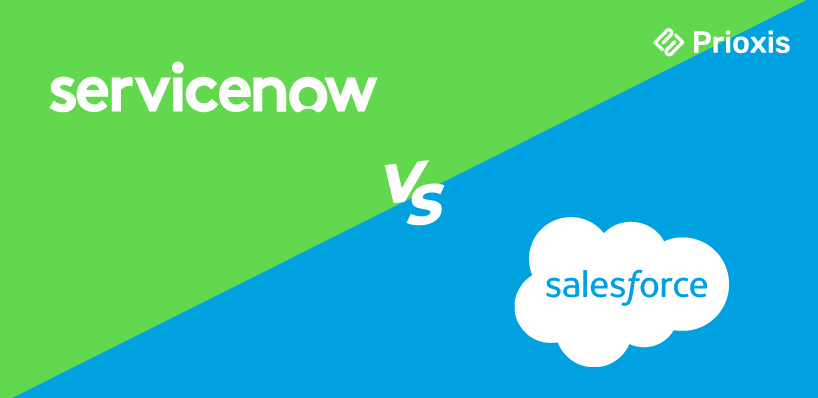
ServiceNow and Salesforce are both robust platforms, but they are designed to do different things and have very different features. Here is a comprehensive comparison of the two:
1. Performance
- ServiceNow: This one specializes in IT service management and automation. With an average page load time of 1.5 seconds and 99.9% uptime, it is minimizing downtime.
- Salesforce: Famous for its CRM capabilities, Salesforce boasts an average page load time of 2.5 seconds and provides a similar level of uptime at 99.9%. This means it's very effective for the completion of CRM-related work.
2. Deployment
- ServiceNow: It is adapted primarily for IT service management, but also can be used for functions like HR and project management. It is only available as a cloud solution.
- Salesforce: Designed for diversified business needs, mainly as a CRM application. Can be installed both on-premises and from the cloud, but at increased costs. It is easier to establish implementation costs with Salesforce.
3. Usability
- ServiceNow: More suitable for IT people because of its tools in technical operation and automation processes, hence, straightforward for those who are used to IT service management software.
- Salesforce: This is designed for CRM users and has an intuitive interface that is easy to use and highly customizable, making it more appealing to a wider audience.
4. Integration
- ServiceNow: The integration process is complex and sometimes limited, often requiring third-party tools, which may increase business expenses.
- Salesforce: Excels in the integration capabilities through built-in features such as Salesforce Connector and provides a marketplace called Salesforce AppExchange for third-party integration solutions.
5. Customer Support
- ServiceNow: Offers Customer Service Management with support available 24/7 through the phone, live chat, and email, automating IT tasks to enrich customer experiences.
- Salesforce: Offers "Service Cloud" with case management and multi-channel options for customer support, making it a better choice for larger enterprises.
6. Security
- ServiceNow: Leverages a multi-tenant architecture with role-based access control and regular vulnerability scanning to ensure security on the platform.
- Salesforce: Has in place robust security measures that include data encryption, two-factor authentication, and real-time alerts, while its data is arranged in objects, fields, and records.
7. Pricing
- ServiceNow: It charges about $70 per user and $100 for ITSM professionals, while the details are available by contacting their representatives.
- Salesforce: Starting at $25 a month on its Service and Sales Cloud, higher-tier plans offer more flexibility in customization and support, up to a maximum of 1000 dollars a month.
8. Future Scope
- ServiceNow: With an emphasis on improving business operations with Artificial Intelligence and Machine Learning, it is expected that its market will be as huge as $12.2 billion by 2025.
- Salesforce: Remains at the forefront in CRM, with enormous growth expectations in the future, with its market globally likely to reach $57 billion by 2025.
ServiceNow and Salesforce: Both offer valuable solutions based on whatever need your organization currently puts a premium value on - probably in IT service management or customer relationship management.
Conclusion
Choosing between ServiceNow and Salesforce is similar to selecting the proper tool for your needs. ServiceNow is best suited for streamlining IT processes, but Salesforce specializes in improving sales and customer interactions. The goal is to identify the platform that best meets your business objectives.
